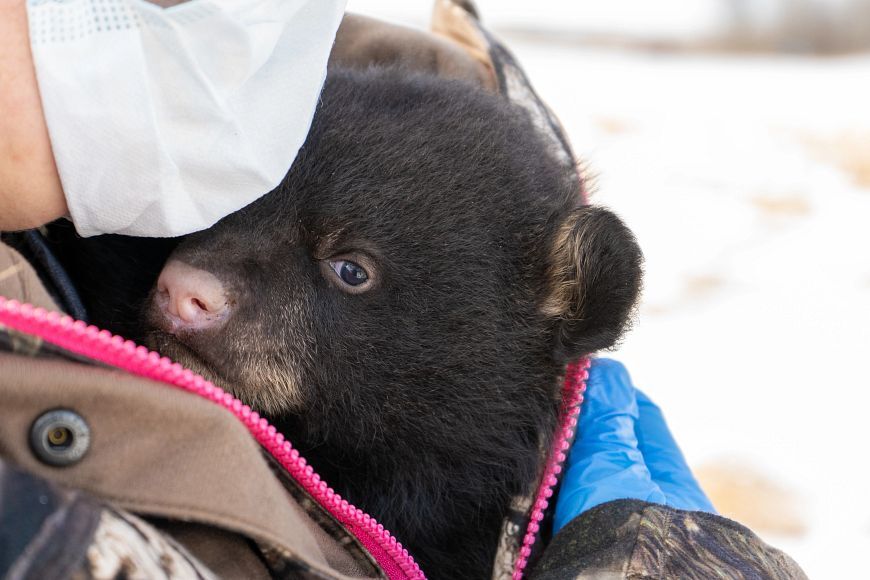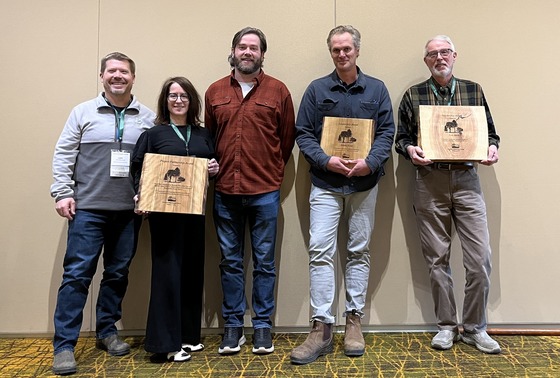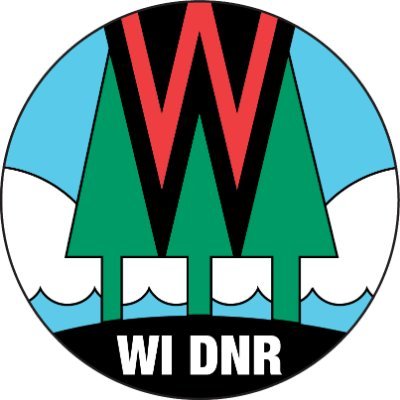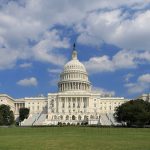DNR Asks Public To Report Black Bear Den Locations For Research Study

Cubs cannot yet regulate their temperature and have delicate immune systems, so researchers wear protective gear and keep them warm while staff members fit a GPS collar on the mother bear during den surveys. / Photo Credit: Wisconsin DNR
MADISON, Wis. – The Wisconsin Department of Natural Resources (DNR) encourages the public to report any black bear den locations across Wisconsin to help with an ongoing study on black bear reproduction.
The study will be entering its fourth year of surveying occupied dens in the Wisconsin bear range. The research team will take den reports statewide but is looking for more dens to survey in bear management zones C, D and E, which cover central and western Wisconsin.
“It is important for the study that we get collars out in each of the bear management zones,” said Dr. Jennifer Price Tack, DNR large carnivore and elk research scientist. “This will allow us to better inform bear population estimates for each zone, which in turn support management decision making.”
The public is encouraged to report as much information as possible about occupied black bear dens without approaching or disturbing them.
Public reporting is essential to this project. Bear dens aren’t frequently found, so it is important that people report them to the DNR when they do. Reporting dens helps the DNR meet the sample size requirements for our study and increases the accuracy of the black bear population estimate.
Helpful information to report to the bear research team includes:
- GPS coordinates
- Photo of the den, ideally showing it in relation to its surroundings, from a safe distance (approximately 30 yards)
- Description of the site and surrounding area
- Any information on the bear(s) and bear activity near the site
Price Tack and her team will work with den reporters and landowners to visit the den before deciding to survey it, determining if it is safe, accessible and in use. Den reporters, landowners and/or land managers are typically invited to help if there is a planned survey for the reported den. The team may not be able to visit every reported den location this season. Dens that are known to be currently occupied will be prioritized.
What Data Will Be Collected
DNR staff will collect biological data from these dens, including sex, age, weight and body measurements. Mother bears, or sows, will be outfitted with a GPS collar, one of the most important pieces for collecting data. Collars help staff learn more about bear foraging behavior and locate the sows in the following years. Revisiting the sows will help staff determine the reproductive success of each sow, such as her litter frequency, litter size and the survival rates of the cubs.
Looking Ahead
The Black Bear Litter and Diet Survey team will continue to survey dens for the next four to five years. Over that time, the team hopes to get 100 collars out across the bear management zones, with approximately 20 collars per zone.
To report a known black bear den, visit the DNR’s black bear den submission form.
NOTE: This press release was submitted to Urban Milwaukee and was not written by an Urban Milwaukee writer. While it is believed to be reliable, Urban Milwaukee does not guarantee its accuracy or completeness.
Mentioned in This Press Release
Recent Press Releases by Wisconsin Department of Natural Resources
DNR Awards Brownfield Grant to City of Berlin
Feb 24th, 2026 by Wisconsin Department of Natural ResourcesFunds Will Support Environmental Assessment























